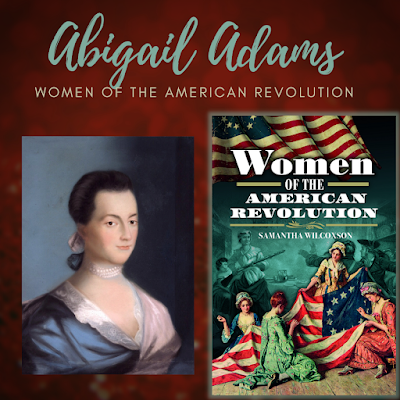 |
Grave of Alexander Hamilton at
Trinity Church in NYC
|
Alexander Hamilton's death is a well-known event in US history, and Aaron Burr's reputation remains stained by his role in that fatal duel. Lesser-known are the details of Alexander's funeral, which took place on 14 July 1804, two days after his death.
Elizabeth Hamilton and her children had no idea of the deadly appointment Alexander had made. John, their son who was not quite twelve-years-old at the time, remembered his father was emotional the night before, though he wouldn't know why until later.
"The day before the duel I was sitting in a room, when, at a slight noise, I turned around and saw my father in the doorway, standing silently there and looking at me with a most sweet and beautiful expression of countenance. It was full of tenderness, and without any of the business pre-occupation he sometimes had. 'John,' he said, when I had discovered him, 'won't you come and sleep with me to-night?' His voice was frank as if he had been my brother instead of my father. That night I went to his bed, and in the morning very early he awakened me, and taking my hands in his palms, all four hands extended, he said and told me to repeat the Lord's Prayer. Seventy-five years have since passed over my head, and I have forgotten many things, but not that tender expression when he stood looking at me in the door nor the prayer we made together the morning before the duel. I do not so well recollect seeing him lie upon his deathbed, though I was there."
Eliza had gathered all of her surviving children to Alexander's deathbed, perhaps underestimating how difficult this situation would be for her dying husband. She held two-year-old Philip, named for his eldest brother who had died before his birth under eerily similar circumstances as their father, up to Alexander's lips, but he reportedly closed his eyes to the rest of them until they left, in too much physical pain to endure this emotional wound.
 |
Statue of Alexander Hamilton
near Hamilton Grange in NYC
|
The children were Angelica, now the oldest at nineteen. She had not been the same since her older brother had died and was mentally fragile for the remainder of her life. Next were a passel of brothers: Alexander Jr - 18, James - 16, John - 11, and William - 6. Little four-year-old Elizabeth was Angelica's only sister.
The four boys, Alexander, James, John, and William, all sat upon the stage that was erected at Trinity Church for their father's funeral oration, given by his friend, Gouverneur Morris. The procession to the graveyard had been the most elaborate New York City had ever seen. Guns had been fired from the Battery, flags were flown at half mast as businesses closed and people lined the streets. Church bells rang as the state militia led the mourners through a sorrowful city.
It was reported that Alexander's sons sat 'with tears gushing from their eyes . . . bewailing the loss of their parent! It was too much. The sternest powers, the bloodiest villain, could not resist the melting scene.' Their mother, sisters, and youngest brother did not attend, as was customary at that time.
Gouverneur Morris gave an oration that he hoped would honor Hamilton while avoiding feeding the howl for vengeance that was raised against Aaron Burr. He said, 'Far from attempting to excite your emotions, I must try to repress my own, and yet I fear that instead of the language of a public speaker, you will hear only the lamentations of a bewailing friend. But I will struggle with my bursting heart, to portray that heroic spirit, which has flown to the mansions of bliss.' This was followed by a brief description of Hamilton's many achievements, from serving Washington during the Revolutionary War to serving as Secretary of the Treasury. Those listening were encouraged to 'Let him still be our model. Like him, after a long and faithful public service, let us cheerfully perform the social duties of private life. Oh! He was mild and gentle. In him there was on offence; no guile. His generous hand and heart were open to all.'
 |
Thomas's Massachusetts Spy
Singlesheet Extra from 25 July 1804
|
Alexander's boys must have taken the message to heart to 'Protect his fame - it is all he has left,' because they, especially James and John, dedicated much of their lives to doing just that, documenting their father's life and defending his name whenever necessary.
Morris gave an inspiring oration, but he wrote more honestly in his private diary, where he admitted, 'this subject is difficult . . . He was indiscreet vain and opinionated. These things must be told or the character will be incomplete - and yet they must be told in such a manner as not to destroy the interest.' Perhaps it is true at all funerals that mourners focus on the positive aspects of the departed, but few had stoked the flames of controversy like Alexander Hamilton with his obstinate opinions, admission of adultery, and the scandalous circumstances in which he died.
Yet, his son, James, when writing decades later, remembered his father's 'gentle nature' that 'rendered his house a most joyous one to his children and friends.' James was thirty years older than his father had been that fatal July day when he wrote, 'His intercourse with his children was always affectionate and confiding, which excited in them a corresponding confidence and devotion.'
In 1817, James A Hamilton was hired by the family of Gouverneur Morris to settle his estate. James called the situation 'a work of great labor' due to Gouverneur's complicated finances and land holdings which took over a year to settle, but he was pleased to serve the wife of the man who had so honored his own late father.





